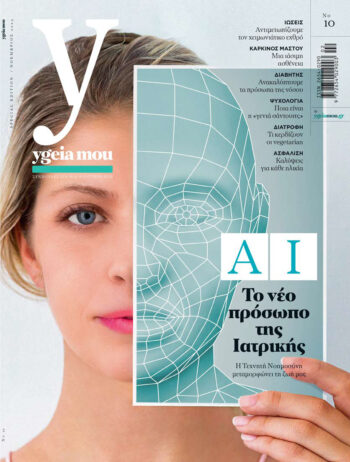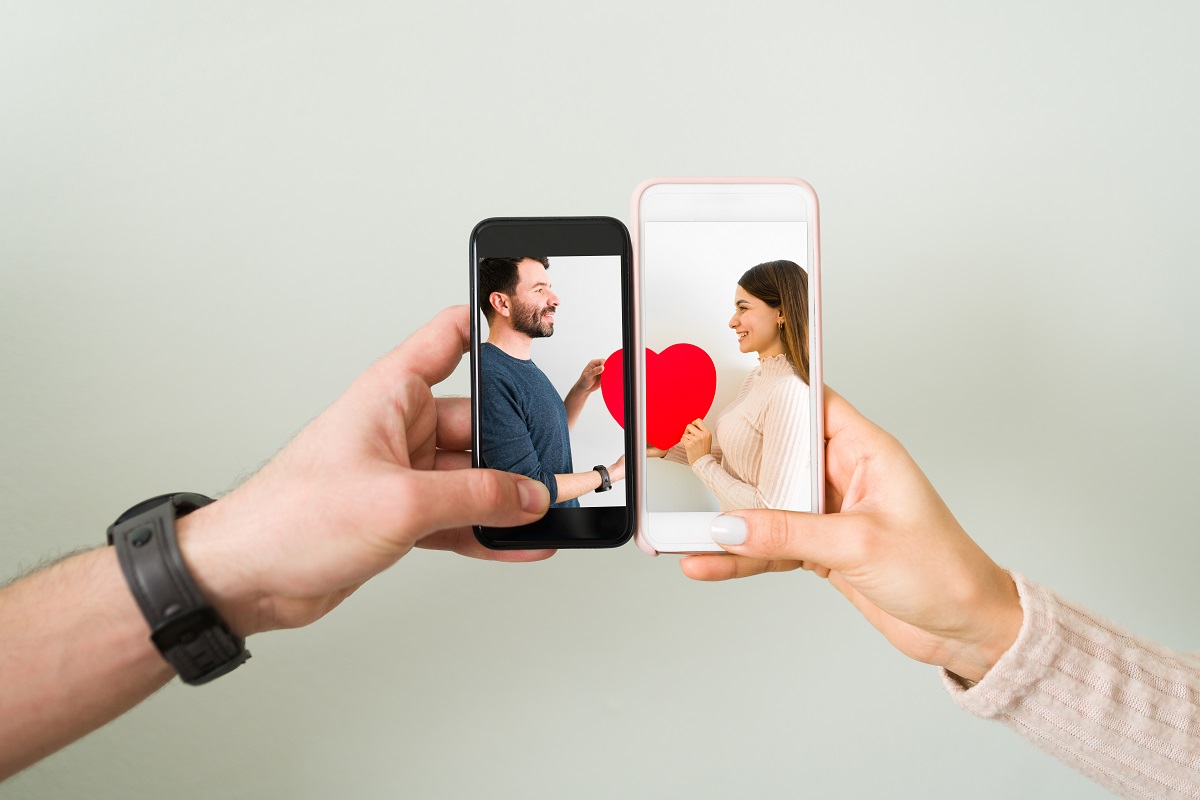[ad_1]
The online dating they entered our lives for good. Like anything new, so too dating apps. On the one hand, people tend to view them skeptically or negatively, or fear that they will alienate romantic relationships. On the other hand, however, they create accounts and use the many dating apps, for all tastes. For younger people, the best known is the Tinder, where users can “like” or “dislike” someone with a simple swipe. If two users simultaneously like each other, then they can start chatting. In another dating app there is a clause that the woman chooses first which man she wants to chat with. In America there are dating apps for all tastes: For people who just want sex, who want romantic love, marriage, for elderly people, farmers… So, depending on what someone is asking for, they enter the corresponding app.
From taboo, mainstream choice
Just a few years ago, online dating was considered taboo, something people avoided discussing. The stigma of “what’s wrong with her that she can’t find a partner within her/his social circle?” it was intense. Today, things have changed and online dating is yet another easy and fast way to meet.
According to dr. Marie Bergströma researcher at the French Institute of Demographic Studies in Paris, who spent more than a decade interviewing creators of dating apps in Silicon Valley, people think of love in this way: They either think love is heavenly, kind of like in the movies, where you meet the love of your life by chance, or they think love is blind, like in fairy tales, where the prince falls in love with the poor girl and it changes his life, whether they believe in the platonic existence of the “other half”, that there is someone in the world who meets the conditions and will make them happy. Online dating is based on this third assumption. People set specific criteria, so as not to waste precious time and meet the person they feel will complete them and be what they dream of.
Search criteria
The most important, perhaps, element of dating apps is that everyone can set criteria in relation to the person they want to meet, for example age, appearance, education, interests. Thus, one can choose from the beginning whether to start a conversation with a candidate.
Also, to love in the age of the internet and dating apps people don’t want to waste time looking for a partner. Many have a limited social circle, so they cannot find a partner there, others do not want to experiment with acquaintances or colleagues, because if the relationship does not go well, they will be obliged to associate with them, while for some it is important to keep the their love life separate from their social life and image.
Online dating helps people keep their sex life separate from their serious social image. Women in particular, who are unfairly maligned for the same sexual behaviors as men, are motivated to meet romantic partners online, keeping what they do in bed to themselves.
Online dating is not automatically sexual. Depending on what one is looking for, two people start an online conversation first with messages and, if that goes well, with open cam, before meeting in person. Especially after the pandemic, online dating experienced a new boom. And, as we learned in e-commerce and online transactions, this sector could not be left behind.
The story of Eva and George
Dating apps offer the convenience of meeting from the comfort of home and the embellished self-image that some choose to present. This, however, is something that is easily disproven with the first face-to-face meeting. Eva*, a former patient of mine, wondered why online relationships didn’t continue and develop into something more permanent after the first date in person. When I saw her profile picture (15 years younger, dyed and made up) compared to how she was in everyday life and on dates (15 years older and completely unkempt and neglected), the inconsistency became apparent and she worked at to accept herself and present it correctly.
George* came to psychotherapy with a request to solve his problem of not being able to create a long-term relationship. He had a traumatic past of sexual abuse and neglect, which he tried to “forget in order to live”. He preferred the anonymity of dating apps, where every acquaintance ended up in bed the first or second time. He himself was getting the confirmation he was looking for, but, for fear of revealing his dark past and what he considered “shameful” things that had happened to him, he abandoned the girl and continued his quest for acquaintances and confirmation.
*names have been changed
Rejection and ghosting
Social rejection it activates the same pathways in the brain as natural pain. Ghosting, the tendency to disappear like a ghost after a date or two and give no signs of life, is another form of rejection that often happens online. When someone gets a pile of rejections and doesn’t have a friendly supportive environment around them, it can take a toll on them psychologically.
The fact that there is no binding or obligation in dating through dating apps is positive for some, negative for others. In reality, however, it is not the medium that determines what becomes of an acquaintance, but the users and how they use that medium. I have many patients who have a history of meeting their spouse through a dating app, which is confirmed by Tinder itself, which states that, based on their data, 25% of newlyweds in America met through this platform. And recent research from the University of Chicago shows that couples who married online have lower divorce rates than those who met offline. So, just like the dress code doesn’t make the dad, dating apps don’t determine the quality of the relationship or marriage. People are ultimately responsible for how they present themselves, as well as how much communication and mental energy they invest in building a beautiful relationship, online or offline.
Online dating relationships lead to sex sooner than other relationships. French research found that 1/3 of people who met online had sex within the first week, while over 50% did so within the first two to three weeks of meeting. In contrast, couples who meet traditionally wait a few months before consummating.
Dr. Lisa Varvogli is a Psychologist – Psychotherapist and Teacher at the School of Medicine of EKPA

